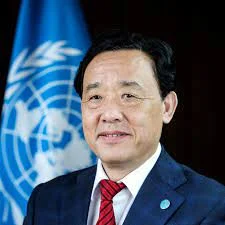Speaking through its Executive Secretary, Mrs Beatrice Eluaka, Wednesday in Lagos during the unveiling of Partnership for Improving Nigeria Nutrition System (PINNS) which includes research findings, progress and call to action, CS-SUNN expressed concern over the malnutrition waste rate of Lagos, which means affected children may die.
Moderate malnutrition (MM) according to the World Health Organisation (WHO) defined as a weight-for-age between -3 and -2 z-scores below the median of the WHO child growth standards. This can be due to a low weight-for-height (wasting) or a low height-for-age (stunting) or to a combination of both.
As said by Mrs. Eluaka, the 2017 Multiple Indicator Cluster Survey (MICS) for Lagos had put the stunting rate at 11.4 per cent, waiting rate also at 11.4 per cent and underweight at 14.5 per cent.
She revealed that the 2014 National Nutrition and Health Survey (NNHS) had put Exclusive Breastfeeding (EBF) rate in Nigeria at 25 per cent.
Also, she said, the 2017 MICS putted stunting rate at 43.6 per cent as against 32.9 per cent in 2015, wasting in 2017 at 10.8 per cent as against 7.2 per cent in 2015 and Underweight at 31.5 per cent in 2017 as against 19.4 per cent in 2015.
So, the rising trend calls for concern unless we take deliberate steps to checkmate the cause, such as EBF.
CS-SUNN, she said, equally commended Lagos State for leading on six months maternity leave for mothers and urged other states to take a queue from the centre of excellence.
“Despite these negative indices, we however must not fail to commend the Lagos State government for extending maternity leave for female civil servants to 6 months and introducing a 10-day paternity leave for fathers,” she noted.
Eluka pointed out that EBF ensures optimal physical growth and brain development of children, engenders them to thrive well and live up to their full potentials at adulthood.
“It also prevents malnutrition” the Executive Secretary said and called for more action to improve EBF.
“We are therefore calling on other state governments in Nigeria to emulate the Lagos State Government as this will contribute to encouraging the practice of Exclusive Breastfeeding especially among working mothers thereby boosting Nigeria’s EBF rate and contributing to a reduction in malnutrition in the country,” she said.
Remmy Nweke/GEE
... Linking agrobiz, sustainable environs, people & technology






